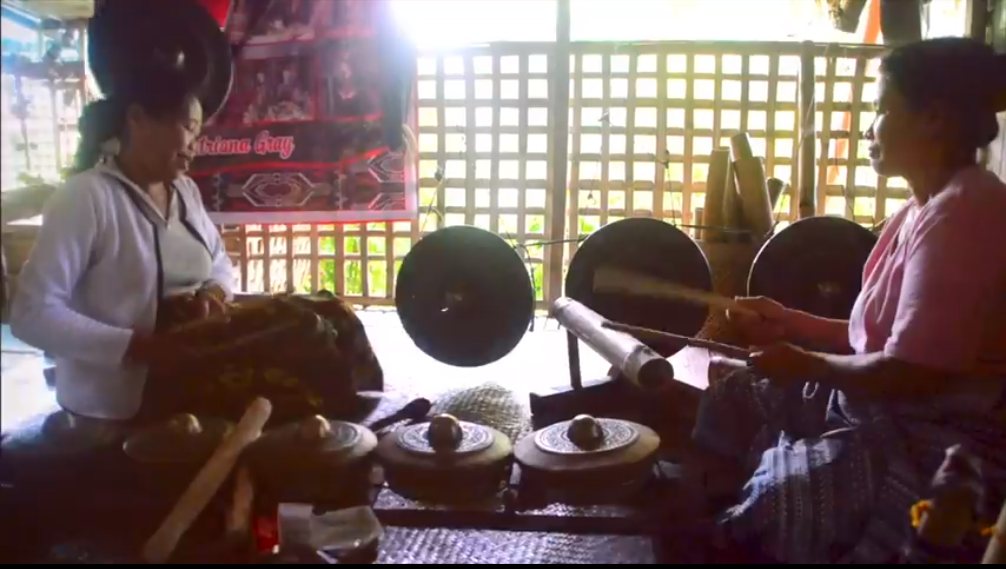
MANILA – Who would have thought there could be science behind bamboo musical instruments (BMIs)?
Bamboos are susceptible to insect attacks, fungal stain, thereby affecting the sound quality and the people’s appreciation for the indigenous music.
With the goal of preserving the indigenous music and document the ethnocultural story behind several BMIs and identify bamboo species, the Department of Science and Technology (DOST) launched the Bamboo Musical Instruments Innovation Research & Development in 2019.
On Nov. 27, the DOST held an online concert, “Musika ng Kawayan Yaman ng Bayan”, to showcase the beauty of BMIs, while also tackling the program.
“I was the one who thought of this concert as our way to show people that scene and technology have a role in preserving and enhancing our culture. The future generations should know about it, and have a chance to be part of it,” Secretary Fortunato del a Peña told the Philippine News Agency (PNA) in an interview.
He added that he hopes to make a new state-of-the-art bamboo organ, which would not only put the Philippines on the international music map but also create an industry that Filipinos could be proud of.
During the concert, DOST Undersecretary Rowena Cristina Guevara noted that the music pieces showcased were fruits of innovation.
“There is history, culture, science that overall created these BMIs,” she said, adding that the agency will continue to help local artisans to improve their instruments,” she said.
The DOST allotted PHP126 million for the three-year program dubbed as Bamboo Musical Instruments Innovation Research & Development.
Through this program, the DOST will help BMIs makers improve the durability of the instruments, without sacrificing or affecting the sound quality, DOST-Forest Products Research and Development Institute (FPRDI) Director Romulo Aggangan told the PNA.
Aggangan said drying, thermal modification, finishing, lamination, and other treatment techniques will be used in this program.
The FPRDI has partnered with the UP Center for Ethnomusicology in 2019 for the teaching module for playing BMIs, as well as with the UP Electronics and Electrical Engineering Institute for testing the sound quality and standardization of design, Aggangan added.
Program head, Aralyn Quintos, said the program has four projects: documentation of Philippine BMIs; protective processing technology of BMIs; processing facility for BMIs and other lignocellulosic material; and development of prototype design and standardization of instrument making process for non-traditional bamboo instruments using select Philippine bamboo species.
A BMI processing facility is being established in Laguna.
“It started in 2019 with the renovation of a building where all the equipment will be housed. Due to the pandemic, there were delays in the delivery of the equipment. Establishment is (still) ongoing,” Quintos said.
She added that the FPRDI will soon sign a memorandum of agreement with two possible adopters, who will be assisted in upscaling their instrument production.
There are no scheduled training sessions yet, she said.
“Should there be one, it will be opened to local BMI micro, small and medium-scale makers,” Quintos said.
Those who would like to avail of any of the FPRDI technologies or are interested to become technology adopters may send a request to the Office of Director Aggangan, she said.
She added that the FPRDI intends to conduct the training nationwide.
Among the concert performers were Joey Ayala, Dipolog Community Rondalla, PNU Himig Kawayan, Huni Ukelele, Pangkat Kawayan, and Dulag Karatong Performers. Aggangan said they represented Luzon, Visayas, and Mindanao.
Some of the instruments they used were karatong (slit drum), katatoktok (lyre), hagubhob (open tube drum), clappers, bamboo marimba, and angklung (tuned bamboo shakers).